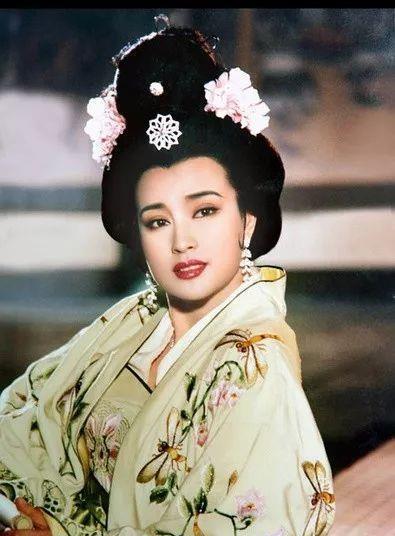
Empress Wu Zetian, originally named Wu Meiniang, was changed to Wu Cao after ascending the throne.
The character "曌" is a newly created character in the Wuzhou Era (some scholars call it an ancient and remote character), which means "the sun and the moon are empty, there is no micro-Buddha, no far away." ”
It is said that in order to commemorate the New Deal and show the grandeur of a new dynasty, Wu Zetian once created seventeen new characters (there are also eighteen, twenty-two, and twenty-three characters).
The creation of characters was the idea of some imperial literati at that time, and with the approval of the empress, it became "Wu Zetian Created Characters" after promulgation.
In addition to the "曌" character mentioned above, there are also some words such as "subject" changed to "one" plus the word "loyalty", expressing her willingness to rule loyally to her subjects;
There is also the change of the word "guo" to the word "mouth" with the words "eight" and "fang", which implies the ambition of the world to belong to Wu Zhou.
The four characters of "thousands and thousands" are combined into the word "nian", which means that the Wuzhou Empire has no boundaries.
Wu Zetian also broke the stroke law of Chinese characters, using a circle to represent the word "star";
The word "swastika" is added to the circle and becomes the word "moon".
Some of the other words are similar and basically serve the public opinion propaganda needs of the new dynasty.
With the demise of Wu Zhou, these words naturally withdrew from the stage of history.
Any great generation of emperors is to bequeathed to future generations some major influence, either negative or positive.
Chinese characters also have their own inevitable laws of development, except for the "曌" character, Wu Zetian's newly created characters have no soul.
Women are sensitive and curious by nature, and Wu Zetian is no exception.
If her "word-making" behavior is regarded as a kind of curiosity, it seems that there is no need to demand the right and wrong of "word-making".
It is not difficult to understand a person, but it is difficult to understand the only female emperor of China.
In the five-thousand-year history of the Yang Dynasty, there have been many emperors with concubines, and people, to be precise, men, seem to be insensitive to this, but prefer to relish wu Zetian's "face".
If Wu Zetian's "character creation" is a historical farce, then Wu's "word change" is a dignified human drama.
Before the Tang Dynasty, although the Chinese characters for "one, two, three..." were passed through "one, two, three...", they were not applied to financial bookkeeping.
At the same time that Wu Zetian carried out the "character-making" campaign, he also changed many words, among which the words "one, two, three, wanton, wu, lu, 桼, 捌, jiu, shi, mo, 阡, and swastika" were applied to accounting and bookkeeping, so as to avoid the risk of tampering with the accounts.
In the Ming Dynasty, at the behest of Zhu Yuanzhang, the "three, the pole, the strange, the eon, and the swastika" were changed to "three, seven, one, one hundred, ten thousand", and the technical precautions in financial management were further improved.
Practice has proved that the capitalization of Chinese character numbers has effectively curbed the act of counterfeiting, so that those corrupt officials who have made false accounts or want to make false accounts can only look forward to the words and sigh.
The use of large characters, Zhu Yuanzhang continued to open up the future, and his peer more than seven hundred years ago, a generation of empress Wu Zetian, is even more indispensable.